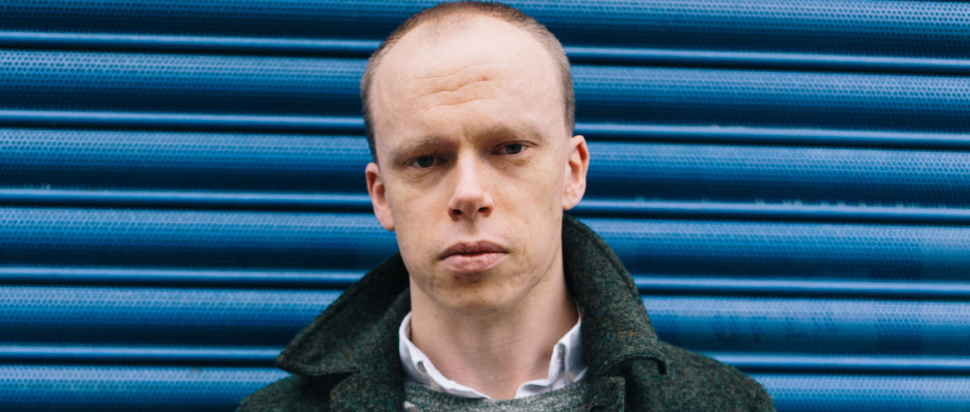Jordan Brookes on The Future of Online Comedy
Showing admirable resilience and innovation no doubt born of several years flyering on Potterow, many comics managed to move things online in 2020. But it’s not been plain sailing as 2019 Edinburgh Comedy Award winner Jordan Brookes tells us
When the UK first went into lockdown in March 2020 (approximately six decades ago by everyone’s internal calendar), among the initial panic and horror of the pandemic, an entire generation of stand-up comedians saw their year’s work evaporate in a stroke. With gigs cancelled, festivals pulled and TV work postponed, comedy crumbled.
Luckily 2019 Comedy Award winner Jordan Brookes managed to find some latitude in declaring himself the only person to hold the award for two years. “As unhealthy as it might sound, performing is a big part of my identity," says Brookes. "In many ways, having that taken away has been both an existential nightmare and a palate-cleansing godsend.”
As an act whose comedy thrives on toying with audience expectations, has Brookes found the lack of interaction particularly difficult? For him, an audience isn’t just for seeing which gags land and which don’t. They’re for determining what’s acceptable and “how far you can push something”. No longer having performance-fuelled adrenaline, Brookes has been left “feeling a bit unsure of myself as a performer.”
The thrill of live comedy hasn’t been completely replicated through online platforms, e.g. Twitch and Zoom gigs, but it has at least plugged some gaps. “Obviously you have audiences in online gigs, but the back and forth isn’t quite the same. It’s harder to gauge if something that works on Zoom will work on stage, particular with an act like mine. They’ve been a lot of fun though – audiences are incredibly nice.
“I tried out an online show in lockdown (based on what I was working on for the Edinburgh Fringe) that had real potential, but I just didn’t have the motivation to see it through,” Brookes explains. Creative fatigue has been highlighted among some of the most prolific comedians on the UK circuit.
But just like the speed with which we’re moving through the current tier system, comedy and audience opinions change like lightning. “Even as I was performing it, it felt like a relic of a world now irrevocably changed.”
Social media has been awash with comedians looking for online validation, some successfully and some less so. The most effective ideas have played to the strengths of online platforms. The ever-inventive Foxdog Studios have taken some of their techy creations off stage and beamed them into fans’ homes, the COVID Arms gigs run by Kiri Pritchard-McLean (and featuring Brookes) have raised over £120,000 for The Trussell Trust, and Daniel Kitson has streamed his work-in-progress gigs from unused theatres across the UK. Brookes is getting in on the act too. He’s set up an online gig with pals and fellow comics Darren Coles and Charlie Webster. Vagabond Comedy still has stand-ups doing a tight five, but “it’s a lot more loose, allowing for conversations and unrepeatable moments of chaos.”
Like many in the industry, Brookes agrees that live comedy is in peril. “As we move more towards a participatory culture that challenges the traditional dynamic of audience-performer, stand-up starts to feel archaic and something exclusively for a dwindling contingent of comedy nerds.” And though this participation lends itself to comedy moving online for now, it doesn’t leave live gigs in the best position. “An already suffering industry will only get worse,” he states.
“By worse, I mean less money,” for acts and audiences, “and fewer opportunities for performers.” As a result, accessibility will free-fall. “Less money in the industry means fewer chances to experiment and take risks. And, inevitably, by and large only the already wealthy will survive, resulting in an even greater lack of diverse voices in stand-up.” For many, the comedy dream will become completely unviable: “The bottleneck has always been narrow for people to squeeze through into commercial (or even just sustainable, full-time) success, and that will tighten to a pin width."
Brookes remains hopeful though. “Some time off from live performance has given people the chance to think about where else they can put their energies,” and he is pleased the adaptation to online comedy has helped other comics. “There are acts who have really taken to online content in a way that has given them an identity they were perhaps struggling to find on stage.”
But more than anything, “Nothing beats live performance. I can’t wait to get back to it. I think.”
Buy Jordan Brookes' previous shows at jordanbrookescomedy.com
Follow Jordan on Twitter @jordbrookes and on Insta @jordanbrookescomedy
